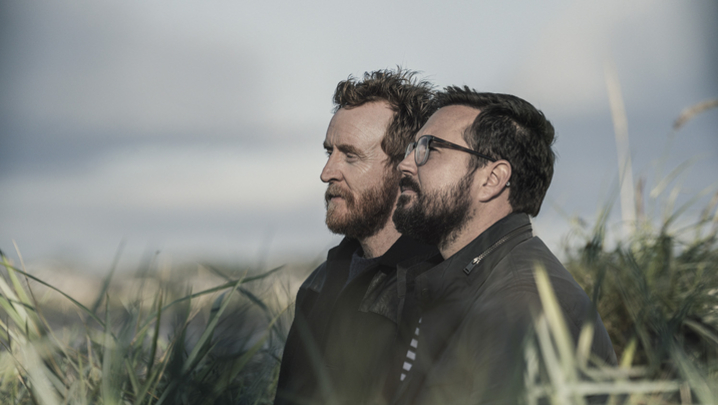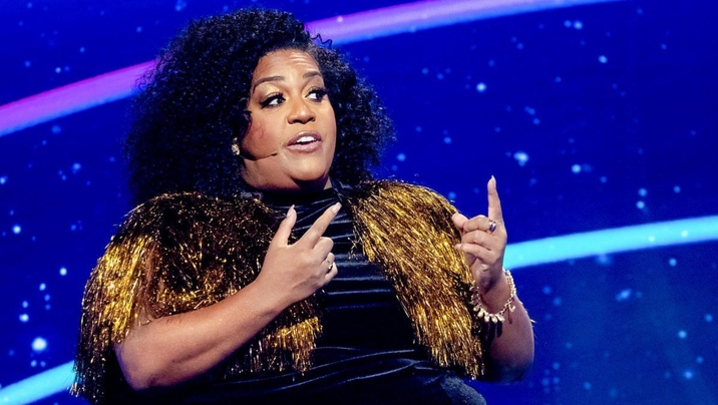The writers of The Salisbury Poisonings tell the RTS why gaining the confidence of local people was critical to the drama’s success
Making successful factual TV drama is fraught with difficulties. The stakes are even higher when programme-makers tackle real-life events – and no more so when they are as recent and raw as the ones depicted in the summer hit BBC One’s three-parter The Salisbury Poisonings.
The series portrays the shocking and incredible events that occurred in the Wiltshire cathedral city when Russian military intelligence officer and double agent Sergei Skripal and his daughter, Yulia, who was visiting from Moscow, were hospitalised after being poisoned by the Russian nerve agent Novichok in March 2018.
For The Salisbury Poisonings, screenwriters Declan Lawn and Adam Patterson needed to fashion a compelling narrative without being cavalier with the truth. “To what extent can you use dramatic licence? That is the most fundamental question in factual drama,” Lawn told the RTS in July. “All drama, whether it’s theatre or a screenplay, has a set of rules. You can write a three- or five-act structure. There are things that have to happen, but there has to be conflict and it has to be resolved.
“As a factual dramatist, you have to integrate real life, which is often messy, with the prescribed rules of television drama. That is hard to do.
“It takes a long time but, on this show, we were blessed. What unfolded in Salisbury was inherently dramatic. There was lots of conflict and chaos. It felt a bit like the movie Jaws – you have this invisible threat taking over a small city. It lent itself to drama. We put a lot of work into making sure that we were factually right. I think, factually, we are right on almost everything.”
That is a bold claim and one unlikely to be made lightly, given that the background of both Lawn and Patterson is in investigative journalism, rather than TV drama. Having worked together since 2013, the pair turned to drama because they wanted to do something more creative.
“Investigative journalism tends to be about how the world works. Drama is about how people work,” said Lawn. “We had a vision of making a kind of factual drama that could encompass both of those things.”
Inevitably, winning their first commission proved difficult: prior to what became The Salisbury Poisonings, their scripts were all rejected, though some nearly made it through.
“Your first big rejection is such a blow,” said Lawn. “It’s hard to describe the disappointment but, the more it happens, the more you get used to it. You realise that the chances of a script getting made are quite slim.
“When The Salisbury Poisonings was commissioned, we weren’t expecting it. We knew the BBC liked our writing, but we’d been there before.”
The idea to tell the story of what happened in Salisbury in the spring and summer of 2018 via TV drama came from Toby Bruce, head of development at independent producer Dancing Ledge. “We had an affinity for telling stories and the ability to discover new info, so Toby sent us to Salisbury to see if there was a story to be told,” said Lawn. “We were told to ‘have a sniff around and discover if there’s a way to tell this global story that we haven’t already heard’.”
At first, he and Patterson were sceptical: “We weren’t sure it was a good idea. The world’s media had been in Salisbury for almost a year. There had been saturation coverage. Everyone knew the story. Why were we going there?
“Eventually, we found something that not many people knew about – the story where the heroes are ordinary people, civil servants, NHS workers, people who’ve been ignored by history. Their lives aren’t juicy enough for drama, but the BBC trusted us to tell those stories, which is why I think the drama resonated so well.”
At first, they approached the task by doing what they’d always done at the start of a journalistic investigation – listing everyone they wanted to talk to and making some relevant contacts.
They were helped by Caroline Bannock, The Guardian’s community editor, who lived locally. She introduced them to several of the families whose lives had been transformed by the poisonings.
One of the key characters in the drama is Tracy Daszkiewicz, at the time of the poisonings director of public health for Wiltshire, played by Anne-Marie Duff. “We chose Tracy because her story was amazing,” explained Patterson. “When we came out of the first meeting with her, Declan and I looked at each other and said: ‘That’s the story.’ Also, it hadn’t been heard before. She was the glue binding the society together after it had been torn apart.”
Another seminal meeting was with Ross Cassidy, Sergei Skripal’s neighbour, who was initially reluctant to talk. Bannock provided the introduction.
“He didn’t entirely dismiss us – he said he’d think about it. A few days later, he called me and agreed to meet me, again at his house. During that second meeting, I spent three of the most interesting hours of my journalistic life,” said Lawn.
Added Patterson: “Caroline would often ask us, ‘Why are people like Ross Cassidy talking to you when they haven’t spoken to anyone else? You’re getting stories that haven’t been told before. Everyone’s tried but they’ve come away empty-handed.’”
What the two screenwriters did have that deadline-chasing Fleet Street and local journalists lacked was the luxury of time: the BBC paid them for six months to research the story, with no guarantee that it would be made.
Patterson explained: “We told people, ‘This is a big ask, you’re going to be putting your lives out there for the world to judge. It’s going to change your life and we can’t exactly tell you how it will change your life. And you’re going to have to trust us, people you don’t know. We’re not going to call you and ask you if you’ve made your mind up – it’s up to you to get back to us.’
“That is why people start to trust you. Not only that, you collaborate with them through the whole process.”
This was particularly true of the Sturgess family. Dawn Sturgess was the only person to die as a result of the poisonings – her partner gave her a birthday present of what he believed was a bottle of perfume that had been dumped by the Russian poisoners in a skip, which, tragically, contained Novichok.
Dawn’s parents felt that elements of the press had created the wrong impression of their daughter. The writers were able to set the record straight.
Lawn said: “They felt their daughter had been misrepresented and caricatured in the national media as a drug addict, which she wasn’t, and as someone who was homeless, which she wasn’t. She did have alcohol addiction problems but was making great steps at getting them under control.”
Unusually, the programme was commissioned solely on the basis of Lawn and Patterson’s research and without a script. That came later.
Throughout the discussion, the writers stressed the collaborative process of making the drama. “We weren’t precious about the script,” Lawn said. “We had between 40 and 50 drafts of each episode. There were so many voices coming in. It might sound horrific, writing by committee, but the job of a TV dramatist is to be a rewriter, a collaborator and not to be a novelist.”
Ultimately, it was the determination to double down and get to the truth of the story that enabled Lawn and Patterson to succeed in telling their version of the poisonings.
“At the end of the day, the best yardstick was that all of the real people who were in the show watched it a couple of months before it aired and said, ‘Yeah, that’s essentially what happened, even if it’s not the literal truth,’” said Lawn. “As soon as we had their sign-off, we thought that, ethically, we were in a good place.”
Report by Steve Clarke. ‘Q&A – Writing The Salisbury Poisonings’ was an RTS Northern Ireland event held on 6 July. Declan Lawn and Adam Patterson were interviewed by Scott Duffield, Chair of RTS Futures Northern Ireland, who also produced the session.






